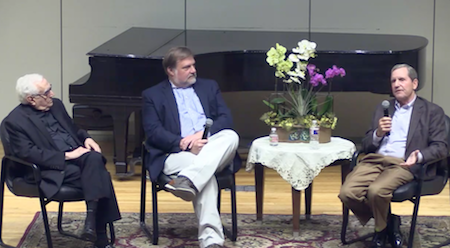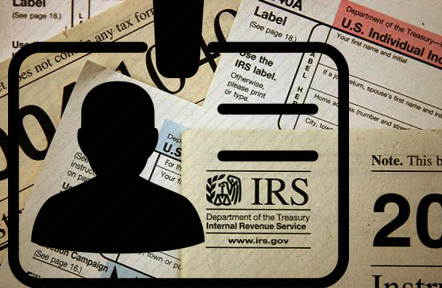ID and Tax Solution for Construction Worker Misclassification and Immigration Challenges
 A recent presentation at the University of Saint Thomas in Houston highlighted how challenges associated with the outdated US immigration system have cultivated an inefficient, unethical, and unsafe shadow economy that threatens the sustainability of the construction industry. Stan Marek, CEO of MAREK, and Loren Steffy, award-winning author and business journalist, discussed how workforce shortages, the lack of a pathway for unauthorized immigrants to earn legal status, and the lack of enforcement against worker misclassification and payroll fraud have made it easier for unscrupulous employers in the construction industry to profit at the expense of law-abiding taxpayers, workers, and businesses. They called on lawmakers to pass a bipartisan ID and Tax policy as a solution.
A recent presentation at the University of Saint Thomas in Houston highlighted how challenges associated with the outdated US immigration system have cultivated an inefficient, unethical, and unsafe shadow economy that threatens the sustainability of the construction industry. Stan Marek, CEO of MAREK, and Loren Steffy, award-winning author and business journalist, discussed how workforce shortages, the lack of a pathway for unauthorized immigrants to earn legal status, and the lack of enforcement against worker misclassification and payroll fraud have made it easier for unscrupulous employers in the construction industry to profit at the expense of law-abiding taxpayers, workers, and businesses. They called on lawmakers to pass a bipartisan ID and Tax policy as a solution.
In the construction industry where workforce shortages are rampant and competition for bids is fierce, Marek explained that one way that many companies cut costs is by classifying their workers as independent contractors instead of employees. Many businesses also pay workers off the books in cash. This allows those employers to avoid paying payroll taxes and providing benefits like health insurance and workers' compensation. Doing this not only allows those employers to undercut and underbid companies that are following the rules, it also cheats taxpayers, and leads to a degradation of the trades due to a lack of emphasis on training and the treatment of workers as disposable.
Marek stressed the importance of the employer-to-employee relationship and the safety and skills training that comes along with it and explained how doing things the right way can actually end up saving costs in the long run and even help to alleviate rising housing costs.
“When you have a system where everybody is an independent contractor and you don’t have an employee to employer relationship, they don’t get the training that employees do. Our company prides itself on safety. Job sites are dangerous. Safety is number one, and then skills training. Somebody that is trained to do a specific function does it better. A big problem we have in construction is doing it twice. So many people, when they’re not trained, make a mistake and it has to be redone. It’s estimated 20-25% of projects have to be redone because people don’t have the skills training,” said Marek.
“I have watched the degradation of trades, especially in residential housing that has all independent contractors. Nobody has an employer-employee relationship, and it's amazing they can build the amazing houses that they do, but if they were trained and had constant skills they could lower the cost of housing. Housing has gotten more expensive because workers are not trained. Unfortunately, that’s what’s now happening on the commercial side as well, people getting away from the employer-employee relationship,” he added.
 Marek also emphasized the fiscal shortcomings of this situation where employment and income taxes are not being paid and uninsured independent contractors end up in emergency rooms leaving taxpayers to foot their bills.
Marek also emphasized the fiscal shortcomings of this situation where employment and income taxes are not being paid and uninsured independent contractors end up in emergency rooms leaving taxpayers to foot their bills.
“If you're not an employee and you're a “self-employed” independent contractor, you’re supposed to pay self-employment taxes, but most of those people don’t and the government doesn’t do anything about it. The IRS is totally ineffective when it comes to collecting money from these people… It’s also a public charge because the taxpayer has to take care of the healthcare costs for independent contractors that aren’t provided employer healthcare insurance for what can be a dangerous job,” said Marek.
The Speakers also explained how this troublesome situation is compounded by the lack of legal immigration status for many construction workers. With rampant workforce shortages, a lack of legal pathways for immigrants to come and work in the construction industry, and no existing method for unauthorized immigrants to obtain legal status, it is estimated that around half of construction workers in Texas are unauthorized immigrants.
“Since 1986 there’s been no way for millions of people to get legal status, so they’re working off the books,” said Marek. “We’ve had to lay off a lot of outstanding workers because we found out through ICE or insurance audits that the ID they had was not their own. When ICE comes in and tells you these people are not authorized to work in the US, the first thing you think is ‘oh well they’re going to deport them.’ They don’t do that. Those workers just no longer work for me. They go to work for someone else as an independent contractor where they get paid less and don’t receive proper training,” he added, explaining why many unauthorized immigrants end up working as independent subcontractors or off the books due to their lack of employment authorization.
The speakers called on lawmakers to pass targeted bipartisan legislation including an ID and Tax policy that will help to discourage this type of worker misclassification while increasing the legal tax-paying workforce. This makes economic sense at a time when open jobs in the US are at an all-time high and workforce shortages are contributing to rampant inflation
“Immigration reform is a political football…we’re never going to solve the whole thing, the term comprehensive immigration reform, it’s too big, too complicated and too divisive…We have a solution. It’s an adult DACA that we call ID and Tax. We’ve got 11 million undocumented people here, many of them have been here for over 30 years. We’re not going to deport them, workforce shortages are killing our economy, and most of them, including construction workers, were labeled ‘essential workers’ during the pandemic,” said Marek.
“Why can’t we ID them for national security, do a background check, and then let employers hire them and pay taxes on them? It’s commonsense,” he added, noting that in the interest of legislative success the policy does not include a path to citizenship.
Creating a method for unauthorized immigrants to earn legal status and work permits would allow them to work for tax-paying employers and generate significant fiscal revenues without raising taxes on law-abiding businesses and taxpayers. This would also help combat inflation by helping to reduce federal deficits. Combining such a policy with legislation to increase enforcement against worker misclassification and payroll fraud would increase its effectiveness in this regard.
“Right now, we all need workers. I need one hundred workers and I can't hire them. And there are so many undocumented workers out there that have been working with 20 years of skills but we can’t hire them…For every 1 million people that we can take out of the underground economy and put on a W2 payroll working as an employee, that’s 4.75 billion a year into social security. Multiply that by 10 and that’s a significant amount of money,” said Marek of the fiscal benefit of ID and Tax.
 Steffy also pointed out that in addition to fiscal and workforce improvement related benefits of ID and Tax, it would also have economic ripple effects by allowing unauthorized immigrants to participate more fully in the economy.
Steffy also pointed out that in addition to fiscal and workforce improvement related benefits of ID and Tax, it would also have economic ripple effects by allowing unauthorized immigrants to participate more fully in the economy.
“It’s not just about hiring them and paying taxes, it’s the societal change that comes about with this. If you have someone that has a job with an employer who can vouch for them and say ‘yes we’re issuing them a paycheck every two weeks,’ they can open a bank account, they can get a car loan, and they can get a home loan. There’s an economic ripple effect here that affects all of us whether we realize it or not. We have allowed these 11 million people to live here for many years, but not to fully participate in our economy. ID and Tax is a way to bring these people out of the shadows so we can get the full economic benefit of these immigrants,” said Steffy.
The speakers also placed emphasis on the need for a legislative solution for DACA, a program that has allowed unauthorized immigrants who came to the US as children to earn legal status and work permits. Although the 10-year-old program has wide public support and has helped enable DACA recipients to increase their contributions to society, it has faced legal challenges based on the fact that it was created through executive order, and faces a real risk of being terminated by federal courts.
“For us, the most important thing right now is the Dreamers. DACA has been floating around out there for almost ten years, and all those kids, I’ve got a bunch of them working for me, they’re great young men and women. 740,000 who signed up and have given all their information to the government, and they’re scared to death they’re going to be deported, and that’s not right. But at least they’re working and contributing. There are another 2 million undocumented kids who have grown up here and gone to our schools, and when they graduate high school they can’t get a job as an employee,” said Marek, pointing out the irony of the current immigration system that does not allow unauthorized immigrant children whose educations we have already invested in to go on and work in legitimate tax-paying jobs.
To learn more about these issues, check out Deconstructed: An Insider's View of Illegal Immigration and the Building Trades, a book co-authored by Steffy and Marek.
Also check out the free Rational Middle Video Docuseries that examines more issues and challenges associated with the US immigration system. Click here to view the episode about ID and Tax.








